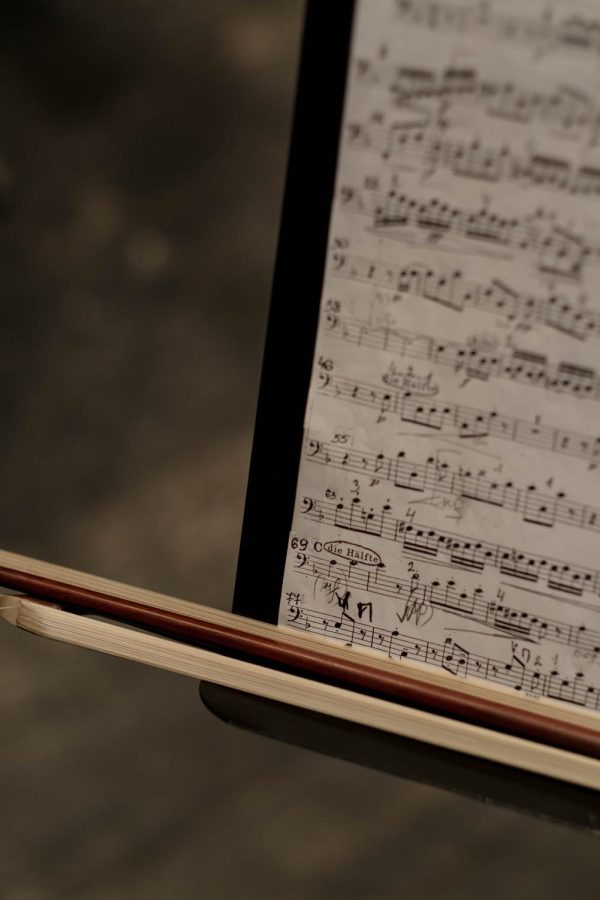Orchestra Solo and Ensemble
February 3, 2023
On Saturday, Jan. 30, orchestra students competed in the UIL Solo and Ensemble competition, with 54 students who walked away with superior ratings.
Solo and ensemble gives students an opportunity to grow and show their musical skills as an individual musician.
“I do solo and ensemble because I love to perform, and it helps me keep my skills up,” bassist Tab Sommers said. “It gives me something to work on that I can keep on my own and whip out time and time again.”
Solo and ensemble also give students a chance to gain confidence in their playing and their techniques.
“The best thing about solo and ensemble would probably have to be gaining confidence and performance skills through practicing,” violinist Audrey Hoang said.
While solo and ensemble is usually at the start of the Spring semester, the hard work begins months in advance, when students pick their solos and begin preparing.
“I don’t remember quite when I picked my solo, but it was probably a couple of weeks before winter break,” Sommers said. “I remember choosing it with my private lesson’s teacher.”
Because students only have a few months before to prepare solos, consistency is a key factor in the process.
“The hardest part is preparation. You have to keep on it or you start to slip and end up close to square one if you’re not careful,” Sommers said.
Performing in front of people is part of the experience of being in orchestra. Performing solos in front of judges can still be a nerve-racking experience.
“I think the hardest thing about solo and ensemble is overcoming performance anxiety,” Hoang said.
Even though playing for a judge can be intimidating, there are ways that students overcome performance anxiety, while everyone handles this in their own way, one technique that can be used is focusing on progress rather than fear.
“Sometimes I do get nervous, but when I do, I take deep breaths and think about how it started out,” Sommers said. “Then, I just feel happy about how much it’s improved, and I get excited to perform instead.”
There are both highs and lows when it comes to solo and ensemble. Finding the time to balance school and extracurricular activities is an element that can make the process difficult, however support makes the process more fun.
“it’s a little stressful trying to balance practicing with schoolwork and sports and activities and stuff like that, but it’s been fun because I’ve had like the directors and my teachers help me out,” Hoang said.
Now with solo and Ensemble over the orchestra is focusing their attention on music for UIL.


